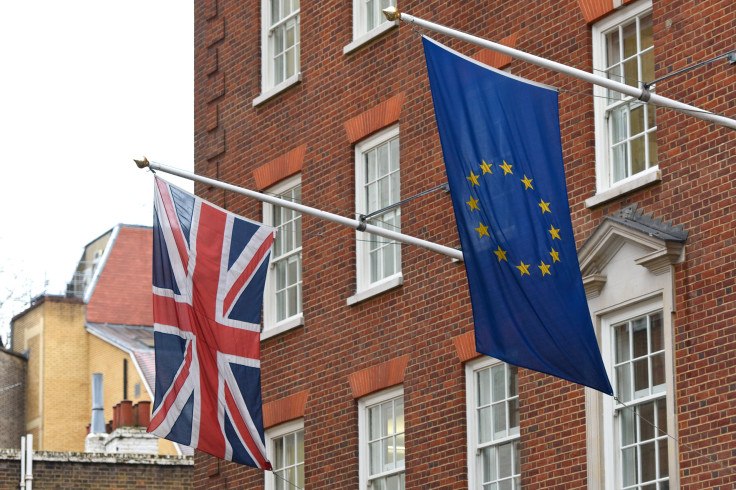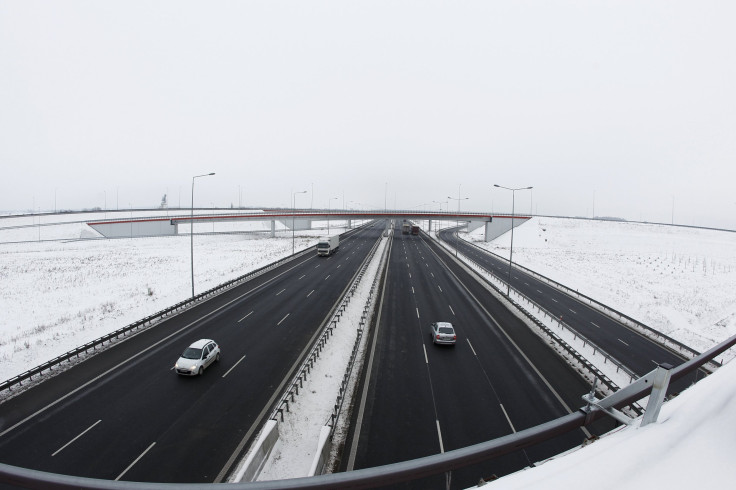EU Brexit 2016: Why Central And Eastern European States Don’t Want Britain To Leave

As the European Union’s members closely watch the “in” or “out” campaigns in Britain ahead of the June 23 vote on whether or not to remain in the EU, the bloc’s newest members in Central and Eastern Europe are especially nervous.
Since joining the EU in enlargement waves over the last 12 years, the weaker economies of Central and Eastern Europe have enjoyed economic growth because of Brussels' spending, fueled in part by Britain's robust economy. With the prospect of a so-called Brexit looming, countries including Poland, Lithuania, Romania and Bulgaria are among the strongest supporters of keeping Britain in the economic bloc as politicians and residents alike have expressed fear about the possible repercussions of a Brexit for their own economies.
A British Cabinet Office report published Monday estimated the loss of one of the European Union's major economic powerhouses would result in a decade-long exit process coupled with economic uncertainty for the U.K. and remaining EU members. After Germany, France and Italy, Britain is the fourth-highest contributor to the EU’s economy and that funding has helped new member states increase their gross national income (GNI).
“The absence of the U.K. in the EU, I think would put Central Europe in a position of asking what the EU is about, is there any practical means for the EU outside of a political union?” said Simeon Djankov, a visiting fellow at the Peterson Institute for International Economics think tank in Washington, D.C., who served as Bulgaria’s finance minister from 2009 to 2013. “The U.K. is a very significant contributor and growth in a number of Eastern European countries over nearly the last decade has been predicated on receiving substantial net inflows from EU funds primarily for infrastructure.”
That growth has been most evident in Poland, which became a member state in 2004 and has been the largest recipient of EU funds for several years, leading to widespread infrastructure development with high-speed trains and new highways. Membership has also allowed the Polish labor force to travel and work throughout Europe, with the highly educated “Polish plumber” becoming a fact of life in the U.K.
Poland, Romania and Bulgaria all receive more money than they contribute to the EU's budget, while the opposite is true for Germany and France — the top two contributors. EU policy dictates that the larger a member's economy the more it pays, not to "redistribute wealth but rather to focus on the needs of all Europeans as a whole." For Germany, total EU spending is 0.39 percent of its GNI, for France it is 0.62 percent, and for the U.K. it is 0.32 percent. The figures jump in Central and Eastern Europe, with EU spending contributing 4.4 percent to Poland's GNI, 5.05 percent to Bulgaria's and 4.06 percent to Romania's.
“It is not in Poland’s interest that the U.K. leaves the European Union. We think it would lead to a big crisis and even a collapse if the U.K. left,” said Polish President Andrzej Duda in January. “In the referendum, we want the British people to vote in favor of staying in the EU.”
A recent survey complied by Lord Ashcroft polls asked more than 28,720 people across the EU between Jan. 20 and Feb. 1 if they wanted Britain to remain in the union. The highest “yes” answer came from Lithuania, which became a member state in 2004. EU spending on Lithuania accounts for 5.36 percent to its GNI. In 2014, the small Baltic state contributed over $320 million to the EU budget, but total EU spending on the country was more than $2 billion. Newer members, including Romania, Bulgaria, Poland, Estonia and Hungary, all polled “yes” at higher percentages than founding member states like Germany, France and Belgium. The two regional outliers, the Czech Republic and Slovenia, both have low rates of migration to the U.K. and get a lower part of their GNI from the EU than do newer members.

If a Brexit does take place, economist Anders Åslund of the Atlantic Council think tank in Washington said the immediate impact for Central and Eastern European states would be small because Britain is tied to the EU budget until 2020. But he said the overall impact could lead to the collapse of the EU, just as Polish President Duda argued.
“The tightening of immigration for Central and Eastern European countries will be more severe, because whatever Brexit will mean, it will mean work immigration from Central and Eastern European countries will cease and that would be a serious source of popular dissatisfaction,” Åslund said.
Romanian and Bulgarian migration to the U.K. has grown significantly since 2013, and British Prime Minister David Cameron debated benefits for migrants in Brussels before returning to London to work for the stay-in-the-EU campaign. A Brexit has also raised concerns over remittance payments from the U.K. to Central and Eastern Europe, with Poland among the top five countries receiving remittances from the U.K., according to a report from the World Bank.
Along with economic worries, the Brexit debate has cast doubt on whether candidate countries and potential candidates will have a shot of joining the economic bloc in the coming years.
“Central Europe is still excited about the prospect of the Balkans also entering the EU in the observable future in the next 5 to 6 years … [Brexit] will postpone it very significantly,” Djankov said.
© Copyright IBTimes 2024. All rights reserved.






















